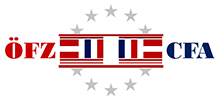Rountable & debate in the framework of the Western Balkans Reflection Forum Series – the Berlin Process and EU Enlargement Strategy: Kosovo in Europe – Ten Years of Contested Statehood in unsettled neighbourhood
Eastern Partnership Reflection Forum in the framework of the Belarussian Presidency of the CEI: The European Union and its Eastern Partners – Current approaches to regional cooperation
December 12, 2017Montenegro, the Western Balkans and the European Union: Accession within reach?
March 23, 2018Rountable & debate in the framework of the Western Balkans Reflection Forum Series – the Berlin Process and EU Enlargement Strategy: Kosovo in Europe – Ten Years of Contested Statehood in unsettled neighbourhood
22 March 2018
Pristina, Kosovo
The 2017 Western Balkans Summit of Trieste was the fourth annual conference held in the framework of the Berlin process. It was attended by the heads of state or government, foreign ministers and the ministers of economy of Albania, Bosnia and Herzegovina, Kosovo, Macedonia, Montenegro and Serbia, Germany, Austria, France, Italy, the UK, Croatia, Slovenia, as well as by the EU High Representative Mogherini and Commissioner Hahn. The Italian hosts also invited the incoming Bulgarian EU Presidency to the meeting, under the auspices of which the forthcoming EU-Western Balkans Summit will be held, in Sofia on 17 May 2018. After years of out of the radar, the Western Balkans seem to be back on the agenda of the EU.
The Berlin process has certainly contributed to this achievement. But its initial objective, beyond keeping the impetus of European integration, was to further “real additional progress” in the region. While the Summit of Trieste reconfirmed the EU’s commitment to support Western Balkan’s path into the EU, the implementation of previous commitments by both the EU and Western Balkans’ governments remains fraught with question marks. The Western Balkans Reflection Forum held in Trieste in June 2017 has highlighted key issues regarding the implementation of these commitments as well as new challenges, rendering EU accession prospects less predictable, notwithstanding the new enlargement strategy of February 2018.
Kosovo is no exception in this respect. Ten years after its independence, the youngest country in Europe faces a series of important challenges rendering its European perspectives still too distant, e.g. in the lengthy reforms process that accompanies its political and economic transformation; in the consolidation and normalisation of its neighbourly relations and dialogue with Belgrade in particular; in the lessening of its international dependence and the advancement of its international relations worldwide.
Following up on the publication of the new EU enlargement strategy, this roundtable will exchange views on current developments in EU-Western Balkans relations in general and EU-Kosovo relations in particular. Co-organised by the Austro-French Centre for Rapprochement in Europe (CFA/ÖFZ, Vienna), Centre international de formation européenne (Cife, Nice/Berlin), GAP Institute for Advanced Studies (GAP, Pristina) and Group for Legal and Political Studies (GLPS, Pristina) with the support of the Open Regional Funds (German Cooperation / GIZ), Balkans in Europe Policy Advisory Group (BiEPAG) and Institut français des relations internationales (IFRI, Paris), it will discuss questions such as: What opportunities and what risks does the Berlin process carry in its current approach? How successful has it been in maintaining the impetus of a slowed-down accession process? What are the key areas for implementation, which the Berlin process should focus on, and how to best use the new modes of cooperation this intergovernmental initiative has introduced? How does the Berlin process in its current approach intersect with the EU’s enlargement strategy and political agenda? What are the implications of the UK hosting the next Berlin Process summit in London in 2018? Which perspectives can the Western Balkans in general and Kosovo in particular now envisage with respect to their EU accession? What are the key hurdles they should expect on their way to EU accession, and how to thwart them?
